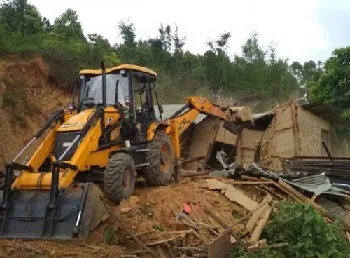Manipur burned in 2001 when the BJP was in power, and again, Manipur burns in 2023 when the BJP is in power. Why?

Hello, everyone. Welcome to my blog, where I share my thoughts on current affairs, politics and social issues. Today, I want to talk about a topic that has been bothering me for a long time: the situation in Manipur, a state in northeast India that has witnessed two episodes of ethnic violence in 2001 and 2023, both coinciding with the BJP government at the Centre or the state. As you may know, Manipur is a diverse state with many ethnic groups, each with their own culture, language and religion. The Meitei community is the largest and dominant group in the state, followed by the Naga and Kuki tribes, who mostly live in the hills. The state has a history of insurgency and conflict, as some groups have demanded autonomy or independence from India. The first outbreak of violence happened in 2001, when the BJP-led NDA government at the Centre signed a ceasefire agreement with the NSCN-IM, a Naga rebel group that wanted to create a Greater Nagaland by merging parts of Manipur and other sta...



